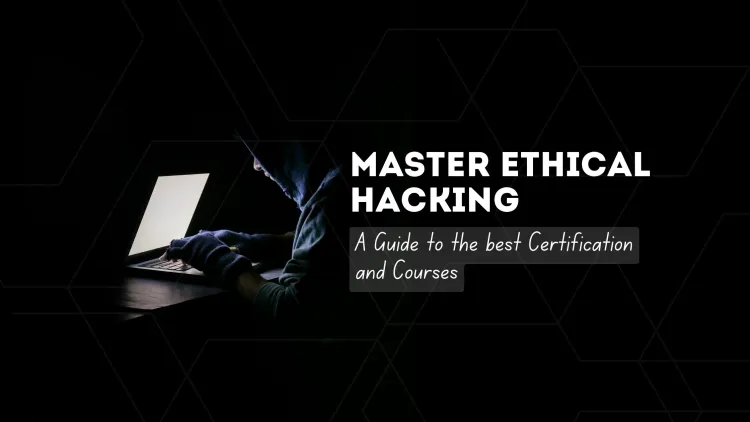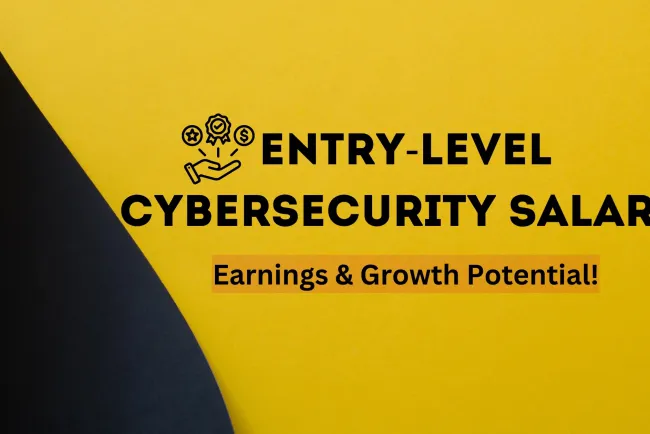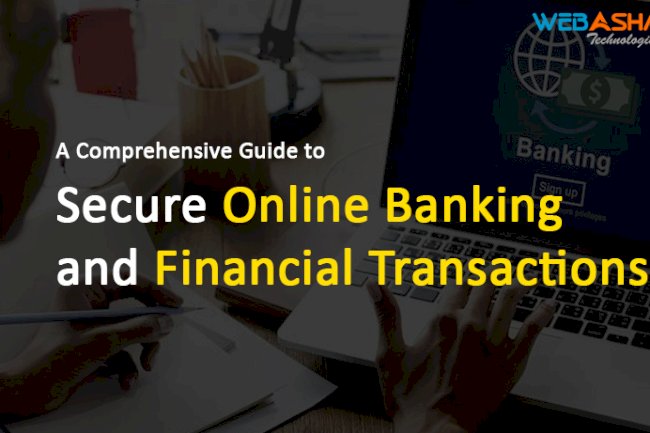Master Ethical Hacking: A Guide to the Best Certifications and Courses
Ethical hacking is a critical skill for combating cyber threats and securing sensitive systems. This blog explores the top 8 ethical hacking courses and certifications designed to help individuals transition from beginner to professional levels in cybersecurity. From foundational certifications like Certified Ethical Hacker (CEH) and eJPT to advanced credentials like OSCP and CISSP, each program offers unique benefits tailored to specific career goals and skill levels. The blog also provides a guide to choosing the right certification based on your expertise and aspirations, empowering you to build a rewarding career in ethical hacking.

In today’s digital world, ethical hacking has become an indispensable skill for safeguarding sensitive information and preventing cyber threats. Ethical hackers, also known as white-hat hackers, are cybersecurity professionals who identify and fix vulnerabilities in systems, ensuring they are secure from malicious attacks. If you're passionate about cybersecurity and want to build a career in ethical hacking, obtaining the right certifications and training is essential.
Here’s a detailed guide to the top eight ethical hacking courses and certifications to help you transition from a beginner to a pro.
1. Certified Ethical Hacker (CEH)
The CEH certification by the EC-Council is one of the most recognized and sought-after credentials in ethical hacking. It provides a comprehensive understanding of hacking tools, techniques, and methodologies used by hackers and cybersecurity professionals.
Key Details:
- Who It’s For: Beginners and intermediate professionals
- Key Features:
- Covers over 20 hacking domains, including network security, web application hacking, and cryptography.
- Practical labs in a simulated environment to practice hacking techniques.
- Why It’s Valuable: CEH is often a prerequisite for many cybersecurity roles and provides a solid foundation in ethical hacking.
2. CompTIA PenTest+
The CompTIA PenTest+ certification focuses on penetration testing and vulnerability assessment. It is a vendor-neutral certification that equips you with the skills to identify, exploit, report, and manage vulnerabilities in networks and systems.
Key Details:
- Who It’s For: Intermediate-level professionals
- Key Features:
- Hands-on performance-based questions.
- Focus on penetration testing frameworks, ethical hacking, and reporting findings.
- Why It’s Valuable: It bridges the gap between CEH and more advanced certifications, making it a great stepping stone for ethical hackers.
3. Offensive Security Certified Professional (OSCP)
Offered by Offensive Security, the OSCP certification is a rigorous program that emphasizes hands-on penetration testing skills. It is highly respected in the cybersecurity community.
Key Details:
- Who It’s For: Advanced professionals with strong technical knowledge
- Key Features:
- A 24-hour practical exam where candidates must exploit vulnerabilities and document their findings.
- Comprehensive syllabus covering buffer overflows, privilege escalation, and more.
- Why It’s Valuable: Demonstrates advanced ethical hacking skills and the ability to handle real-world challenges.
4. GIAC Penetration Tester (GPEN)
The GIAC Penetration Tester certification is offered by the Global Information Assurance Certification (GIAC) and focuses on techniques and methodologies used for penetration testing.
Key Details:
- Who It’s For: Intermediate and advanced professionals
- Key Features:
- Covers topics like reconnaissance, scanning, and exploitation.
- Includes legal and ethical considerations.
- Why It’s Valuable: It’s ideal for those who want to specialize in penetration testing with a strong focus on professional ethics.
5. Certified Information Systems Security Professional (CISSP)
The CISSP certification by (ISC)² is not strictly an ethical hacking certification but a broader cybersecurity credential. It is designed for experienced security practitioners and managers.
Key Details:
- Who It’s For: Advanced professionals
- Key Features:
- Covers eight domains, including security operations, software development security, and risk management.
- Focuses on designing and managing security protocols.
- Why It’s Valuable: Enhances your credibility and opens doors to senior cybersecurity roles.
6. eLearnSecurity Junior Penetration Tester (eJPT)
The eJPT certification is an entry-level program that provides practical penetration testing skills. It is ideal for beginners who want to kickstart their ethical hacking journey.
Key Details:
- Who It’s For: Beginners
- Key Features:
- Hands-on labs focusing on real-world scenarios.
- Covers networking, web app security, and system fundamentals.
- Why It’s Valuable: Affordable and beginner-friendly, making it a great first step into ethical hacking.
7. Certified Red Team Professional (CRTP)
The CRTP certification by Pentester Academy focuses on red teaming, where ethical hackers simulate real-world attacks to assess an organization’s defense mechanisms.
Key Details:
- Who It’s For: Intermediate to advanced professionals
- Key Features:
- Focus on Active Directory security.
- Practical exercises simulating real-world attacks.
- Why It’s Valuable: Builds specialized skills in red teaming and strengthens your offensive security expertise.
8. Cisco Certified CyberOps Associate
This certification by Cisco is ideal for those interested in security operations and incident response. It combines theoretical knowledge with practical skills.
Key Details:
- Who It’s For: Beginners to intermediates
- Key Features:
- Focuses on security monitoring, threat analysis, and response.
- Hands-on labs to reinforce learning.
- Why It’s Valuable: Provides a solid foundation in cybersecurity operations, complementing ethical hacking skills.
How to Choose the Right Certification?
Choosing the right ethical hacking certification depends on your career goals, current skill level, and areas of interest.
Quick Guide:
- For Beginners: Start with eJPT, CEH, or CompTIA PenTest+ to build foundational skills.
- For Intermediates: Consider GPEN, CRTP, or CompTIA PenTest+ for specialized training.
- For Advanced Professionals: OSCP and CISSP are excellent options to demonstrate expertise and qualify for senior roles.
Final Thoughts
Ethical hacking is a dynamic and rewarding field, but it requires continuous learning and upskilling. These certifications not only validate your skills but also help you stand out in a competitive job market.
Whether you’re just starting or aiming to advance your career, investing in the right courses and certifications is a step toward becoming a cybersecurity pro.
Start your journey today and secure your place in the world of ethical hacking!
FAQ:
1 What is ethical hacking?
Ethical hacking involves identifying and fixing security vulnerabilities in systems to protect them from malicious attacks.
2. Which is the best ethical hacking certification for beginners?
Certifications like eJPT, Certified Ethical Hacker (CEH), and CompTIA PenTest+ are ideal for beginners.
3. What is the difference between CEH and OSCP?
CEH focuses on understanding hacking methodologies and tools, while OSCP emphasizes hands-on penetration testing with real-world challenges.
4. How much does the CEH certification cost?
The CEH certification typically costs between $950 and $1,200, depending on the training and exam bundle.
5. Is prior programming knowledge required for ethical hacking?
While not mandatory for entry-level certifications, understanding programming languages like Python, C, or Java is beneficial for advanced certifications.
6. How long does it take to prepare for certifications like OSCP?
Preparation time varies but generally requires 2–4 months of focused study and practice.
7. What is the role of a red team professional?
A red team professional simulates real-world cyberattacks to test an organization’s security defenses.
8. Are online courses effective for ethical hacking training?
Yes, many certifications offer online training with practical labs, making them convenient and effective for learning.
9. What are the career opportunities after completing an ethical hacking certification?
Career paths include roles like penetration tester, security analyst, red team expert, and cybersecurity consultant.
10. Can ethical hacking certifications help me work internationally?
Yes, globally recognized certifications like CEH, OSCP, and CISSP can open doors to international job opportunities in cybersecurity.












![Top 10 Ethical Hackers in the World [2025]](https://www.webasha.com/blog/uploads/images/202408/image_100x75_66c2f983c207b.webp)

![[2025] Top 100+ VAPT Interview Questions and Answers](https://www.webasha.com/blog/uploads/images/image_100x75_6512b1e4b64f7.jpg)









